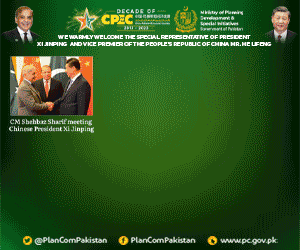Did SC Want To Reassert Its Power By Suspending COAS’s Extension?

Awais Babar analyses the Supreme Court’s initial decision of suspending the COAS’s extension over procedural loopholes in the notification and later letting him stay for six months subject to legislation over the matter.
Never has any event entailed a unanimous theory explaining the factors which led to it the way the case of civil-military affairs in Pakistan does. Ever since the Supreme Court commenced its proceedings on Tuesday last week with regard to the army chief’s extension, different quarters have been coming up with various conspiracy theories as to what may have prompted the apex court to take up this issue. They argued that extension to a COAS was not an unusual happening in Pakistan’s political history.
People are also bewildered by the fact that the army chief’s term of service was being discussed in the SC, and that too in a way that was least expected, in the language that was never spoken before, in a tone that never echoed before.
Let us examine the most trendy explanations/conspiracy theories to this issue. Basically, there are two. Many tend to believe that the Supreme Court wanted to reassert its power over the government and the army and also emphasize that nobody is above the law.
This seems too good to be true. Contrary to this, others believe that what transcribed over the last few days was just due to government’s incompetence. Be that as it may, the government in general has been making blunders since the very beginning. Why was this particular issue taken up at this particular time?
Antithetical to both these theories is another one, that the PM wanted to settle the score with the Army Chief for his nod in Nawaz Sharif’s departure to UK and that the government’s inactions were deliberate to cause embarrassment to the Army Chief. This theory, as amusing as it may sound, has no basis as no one on earth expected the judiciary of even looking at this issue.
Aside from all these theories, some foreign newspapers are reporting that the SC and those senior most Generals had a liaison who would miss out on their promotions if General Bajwa continues to be chief for another tenure.
If this is true, then the next six months are going to be rough. The parliament will be at the crossroads, perplexed as to which way to go.
I believe that a series of propaganda that has been constantly pinching the courts over the time by a variety of quarters finally angered the judges and they just could not take it anymore. For instance, not too long ago, in the hearing pertaining to Nawaz Sharif’s bail, Honourable Chief Justice of the Islamabad High Court Justice Athar Minallah had stated quite unequivocally that whoever tried to defame the courts into some deal conspiracies will either have to prove it or will be held in contempt.
Not to forget that the judge’s name was audaciously jeered by PTI social media stalwarts when the former had suspended the conviction pertaining to Nawaz Sharif in Avenfield case.
Every time a decision would come against Nawaz Sharif or Zardari and/or their foes, the courts were being celebrated. Judges were being thanked by name by the crooked politicians and analysts in their rallies and TV shows respectively. This is embarrassing for the judges and they will tell you why. Ayaz Amir, who now seems to be very upset with his previous analyses of the days when the former CJP and the subordinate courts were in super active mode, once said condescendingly in his show, “All this is happening because now the fort is strong”.
However, anytime Zardari and/or Nawaz would get a relief from courts, for example in the form of a bail, the same judges were being accused of having been bought off. This plight seems to have made the judges very upset and rightly so, and their disquiet is amply clear from their recent remarks and broken silence.
Advocate, Mr. Riaz Rahi, the petitioner in the Army Chief’s extension case, is a ghost. He is reported to have made similar petitions, sensitive in nature, and with no obvious motive behind all these. But he became irrelevant the moment the court refused to allow him to withdraw his application and considered it to be the one of public importance.
What appears to have triggered the Supreme Court’s intervention despite the petitioner’s request to withdraw his application is the speech made by the PM in Abbottabad in which he indirectly taunted the Justices and accused them of having favoured Nawaz Sharif; the PM even went as far as naming the top two Supreme Court Justices.
“They should restore the people’s trust in the justice system”, he said. This sarcastic remark by the PM is clearly incriminating the judges and all the more endorsing that as of now people do not trust the judiciary and that judges should attempt to fix that.
And that an indicator of such restoration in trust would be that no decision should go in favour of any member of PPP or PML-N, otherwise the judges will deemed to have been compromised.
CJ Khosa not only stood up for himself but also the whole judiciary by choosing to respond, “Don’t taunt us about powerful people as no one is powerful before the court. Only the law is powerful”, in a ceremony right next day.
In addition, the government deliberately endeavored to mislead the nation into believing that it was not the government but rather the courts who allowed the convicted former premier to go abroad. They did so in two-tier way. Firstly, by requiring the accused to provide an indemnity bond that should he not come back from UK this bond would act as a guarantee. I explained in my previous article regarding the indemnity bond that no such thing exists in the criminal law and this was merely a political Frisbee, glided by the government to make the situation look good from their perspective, and the govt chose to malign the courts instead to satisfy their followers.
Secondly, a campaign was launched against the judiciary which even spread across the globe. The social media groups belonging to the ruling party smeared the court’s reputation by circulating a line from a foreign newspaper, “Are Pakistani courts bitches of the riches?” No statement was issued by the government to counter this malicious exercise, on the contrary, many government ministers kept indirectly affronting the judges. Therefore, the judiciary had no option but to speak for itself.
The Honourable CJP thwarted both these attempts by categorically telling the nation that it was in fact the government which had allowed the former premier to travel abroad. “I do not want to comment on the particular case [of Nawaz Sharif], which the prime minister had referred to but he [PM] will be aware that he himself gave [Nawaz] permission to go abroad.”
As a result, the PM ordered his soldiers to stand down. However, the SC was not done yet. Taking up the extension issue is one thing but the manner in which the proceedings went through signify that the courts wanted to teach the government a lesson which it has been avoiding to learn since the beginning.
The CJP’s remarks are quite quintessential of this proposition, “The legal complications that we are pointing out will cause you difficulties but do not consider this embarrassing,” the chief justice said to the Attorney General, this was actually being said to the government.
Whilst directing the government to come up with a new summary, with specific directions that Supreme Court should not be mentioned nor the duration of extension, the CJP told the AG, “Put your house in order.” This was again in effect not said to the AG, but rather to the government, only if it is wise enough to understand.
Unsurprisingly, the directions were not followed and once again the CJP did not let it go. “Bear your own burden, why do you use our name?” Justice Khosa asked. “Do your own work, why do you drag us in the middle?”
I have reproduced quite a few remarks made by the judges in order to substantiate the idea that the court’s target in these proceedings was mainly government. The courts put the government on a very weak footing by giving it a homework to do and that too in the subject in which its performance is zero; legislation. It has also squeezed its hands just in case it fails to bring in the required legislation.
Therefore, at the end of the six months should the government fail to successfully pass a new legislation from the parliament, the animosity will be between General Bajwa and the government; the courts will be on the back-burner.
Many analysts have shown disappointment over the Supreme Court’s ruling to allow the chief to continue for now and are calling it an endorsement of the doctrine of necessity. I tend to respectfully disagree as the court did allow an extension of six months but cancelled the extension/reappointment for three years. In my view, the glass is half full.
The Supreme Court’s intention was never to hamper the progression of the Army Chief but a chain of events caused it to do so. Some pieces are still missing; notwithstanding, the atypical thing about the truth is that it always comes out, one way or the other.
The author is a barrister practicing law in Peshawar and Islamabad. He graduated from Cardiff University. The author can be reached at awais_babar@live.co.uk.










